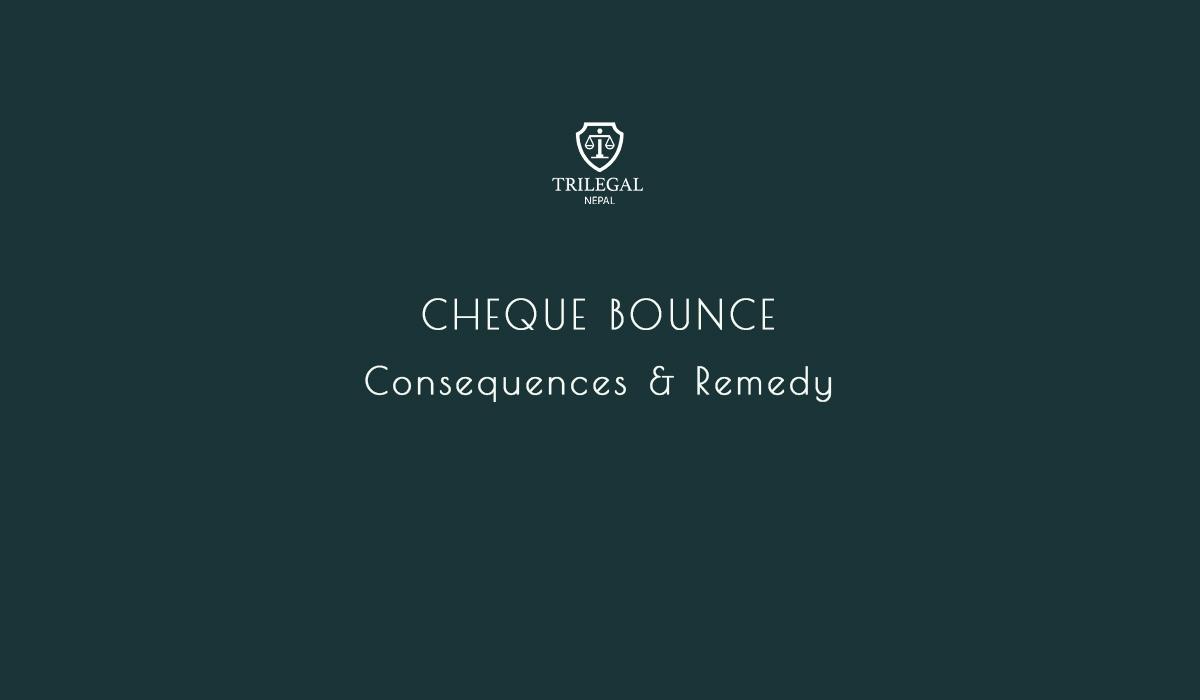Cheque bounce cases are in the rise in Nepal and it is of utter importance to understand the remedies at disposal if one comes across such situations ever.
A Cheque bounce occurs when the amount denoted on the cheque by the benefactor is not obtainable for withdrawal. The bank refuses to honor the cheque for multiple reasons and most commonly this transpire from not-sufficient fund in the account of the benefactor. Cheque bounce may occur because of the ill-intention of the benefactor or is an accidental situation where the cheque issuer believes that the amount denoted on the cheque is available in their account. In many cases, the signature on the cheque of the account holder doesn’t match with the signature recorded at the bank, or the bank has been pre-informed for the cheque to be not processed.
Resolving the Issue:
Cheque bounce cases are in the rise in Nepal and it is of utter importance to understand the remedies at disposal if one comes across such situations ever. First of all, if you believe that the cheque bounce occurred accidentally then you can simply resolve the issue amongst yourselves, however if the benefactor willingly disagrees to resolve the situation or denies to clarify the reason then the effected party can always seek for legal remedies.
What the Law States?
In Nepal, the cheque bounce cases are governed by the Negotiable Instrument Act, 1977 and theBanking Offence and Punishment Act, 2008.
# Negotiable Instrument Act, 1977: A civil lawsuit can be pressed against the benefactor by the effected party resulting in compensation of the amount denoted on the cheque and interest will be applied. The benefactor may also be fined for an amount up to 3 (three) thousand rupees or imprisoned for 3 months.
The process to file a civil lawsuit:
1. File a statement at the District Court not later than 5 years from the date of incident.
2. Witness and evidence examination is carried out.
3. Final decision is made by the District Court.
4. If the applicant or benefactor is not satisfied with the decision, an appeal to the High Court is plausible.
5. Banking Offense and Punishment Act, 2008: This is a criminal lawsuit where the person who is the benefactor of the cheque drawn had knowledge on the unavailability of the denoted amount in his/her account hands over the cheque to the other party. In this case, the benefactor is criminally prosecuted and can be imprisoned up to 3 months. Also, the claimed amount along with fine has to be provided to the effected party.
The process to file the case:
1. Since this is a criminal case, FIR (First Information Report) has to be filed at the Police Office not later than 1 year from the date of incident.
2. Investigation report is sent to Government Attorney.
3. Charge sheet is filed at High Court.
4. Hearing at the High Court.
5. Witness and evidence examination.
6. Final decision is made by the High Court.
7. Appeal to Supreme Court is doable if there is dissatisfaction on the decision.
